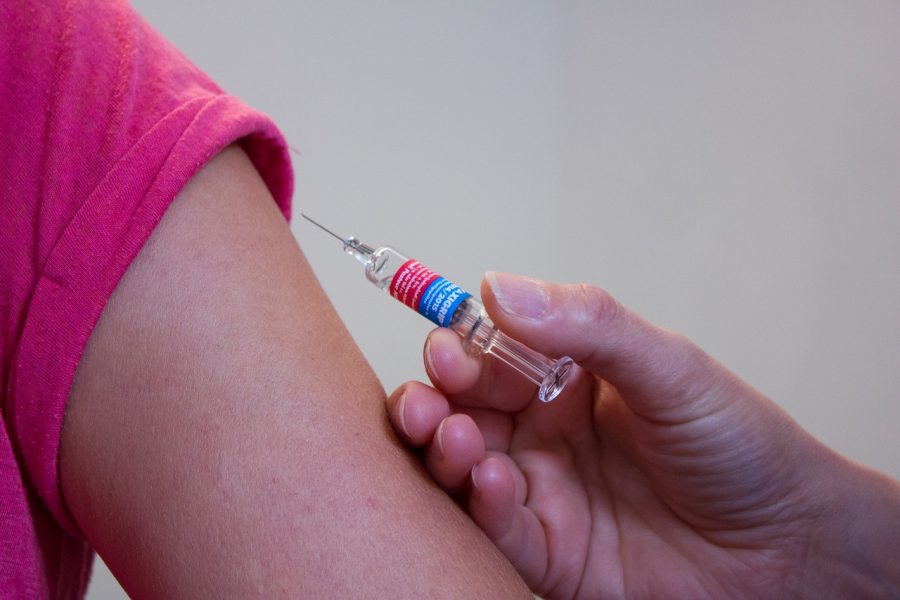Smallpox to Covid: The Development of Vaccines
The development of vaccines has come a long way since 1796 when the only way to become immune to smallpox was to have a cowpox wart scraped on your skin. Nowadays, all that’s required is a simple injection of a vaccine and an occasional booster.
During the outbreak of smallpox in the mid to late 18th century in Europe, the most people could hope for was to not contract the deadly disease. It wasn’t until 1796 when a primitive version of a vaccine became widely available that the fear of illness started to decrease.1
Rumor has it that a milkmaid was the one who found a potential cure. The story goes that after coming into contact with cowpox, she realized that it had similar symptoms to smallpox; with this discovery, she was able to enlist the help of a doctor named Edward Jenner who ran trials exposing volunteers to the cowpox virus and then smallpox. In every case, the people never got a serious case of smallpox afterward.1
However, the story of the milkmaid was just that: a story. Edward Jenner got heavy criticism on how he concluded that smallpox and cowpox were linked. So his friend and biographer, John Baron, spread the story of the milkmaid several years after his death, which eventually gained enough traction to become the new truth. Yet the discovery behind it was truthful; cowpox is a similar disease to smallpox. It affects cows instead of people. However, cowpox is a lot milder and isn’t lethal to humans.1
Edward Jenner wasn’t the first one to produce a successful vaccine. During the 15th century in China, there was also a smallpox outbreak, which prompted the development of their own methods. Instead, they took dried smallpox warts, crushed them into a powder, and exposed it to people who hadn’t gotten it.2
By exposing them to a weaker version of the virus, people became immune to smallpox.3 Eventually, these types of treatments evolved into vaccines, allowing smallpox to be an illness of the past; as of 1980, it has been officially declared eradicated, according to the World Health Organization (WHO).
Vaccines became mandatory in many places as more research was done on topics like the immune system and live attenuated vaccinesㅡa weakened version of the virus in the vaccineㅡwhich made the development period a lot faster.4 Of course, not all illnesses can be or have been eradicated because of vaccines.
Covid-19 is a recent example of an outbreak that has required quick action in terms of vaccine development. In Pennsylvania, the Covid-19 death rate is only ~0.02%, but it’s one of the most deadly viruses we’ve had in years. 0.02% may not seem high, but it’s 20 times the death rate of the flu, which is approximately 0.001%.5
On top of that, mutations of Covid-19 are starting to develop. The Delta variant is one of the most common being talked about now. Mutations happen over many generations of the virus as it moves from host to host. Enough mutations can become a variant of that virus. Once it’s proved that a variant has different biological capabilities, then it’s called a strain. The flu is one example of a virus that mutates so often that we have to get a new vaccine for it each year.6
The reason that the Delta variant is such a worry is that the vaccine is less effective against it than the original Covid-19 strain and it spreads a lot more easily. Covid-19 mostly spreads through aerosols, which are small droplets. Not only can this new variant produce more aerosols that travel greater distances than previous variants (like the Alpha variant), but it is also more contagious. The reason this is such a problem is that as more variants develop, the current vaccine will have less effectiveness, similar to the flu vaccines. Eventually, a new vaccine will be required, which can take a long time to develop.7 “There are many experts who believe that if enough of our population gets vaccinated, we can mitigate the spread of the virus, and stop this pandemic,” says Natalie Mayer, Science Department Chair and Biology Teacher.
Ever since the worldwide outbreak in February of 2020, scientists and doctors have been working on a vaccine and several were recently approved by the FDA. Moderna and Pfizer both require two separate shots, while Johnson & Johnson only requires one. According to Healthline, the second shot is to improve someone’s immune response, as studies during early trial runs found that only one shot of Moderna or Pfizer produced too weak of a response to produce the antibodies required for adequate immunity. The main similarity between Johnson & Johnson and Moderna/Pfizer is they use mRNA technology, which teaches your body to program the spike protein specific to this variation of Covid, aka SARS-CoV-2.
A spike protein is a kind of protein specific to the Covid virus. These proteins, which contain carbohydrates, allow them to attach to certain cells in your body by changing their shape. By attaching itself, it can gain access to your respiratory system, causing infection. The vaccines expose your body to these just spike proteins without the harmful part of the virus, preparing your immune system if it does ever come into contact with Covid-19. Unfortunately, mRNA is very fragile, which is why it has to be stored at such a low temperature.8
While not all vaccines have to be kept at low temperatures, all vaccines have one common downside. After a while, if your body doesn’t have contact with the virus, it can “forget” how to make those antibodies; this became apparent many years after the smallpox vaccine was invented, as the potency of the vaccine started to decrease. In 1836, physician Edward Ballard made this discovery and found that creating different strains of cowpox could increase the potency of the smallpox vaccine again, making it more effective. Using this technique eventually became known as booster shots.9
Boosters are a required follow-up for vaccines because your immune system eventually stops producing the antibodies when not exposed to the virus. Boosters act as a smaller-scale version of the vaccine that makes your body start producing the proper antibodies again. Recently, Covid-19 boosters were approved for all adults over 18.10
“We are able to fight off some viruses successfully, like the common cold usually caused by rhinovirus, but some viruses are too strong and overpower our immune systems too quickly before we can effectively fight them off. For these, vaccines can help tremendously,” says Natalie. Without vaccines, it would certainly take many more generations to become protected from certain viruses like smallpox. If we never learned how to develop remedies, as in 15th century China or 18th century Europe, the human population might not have survived into the 21st century.
Sources:





























